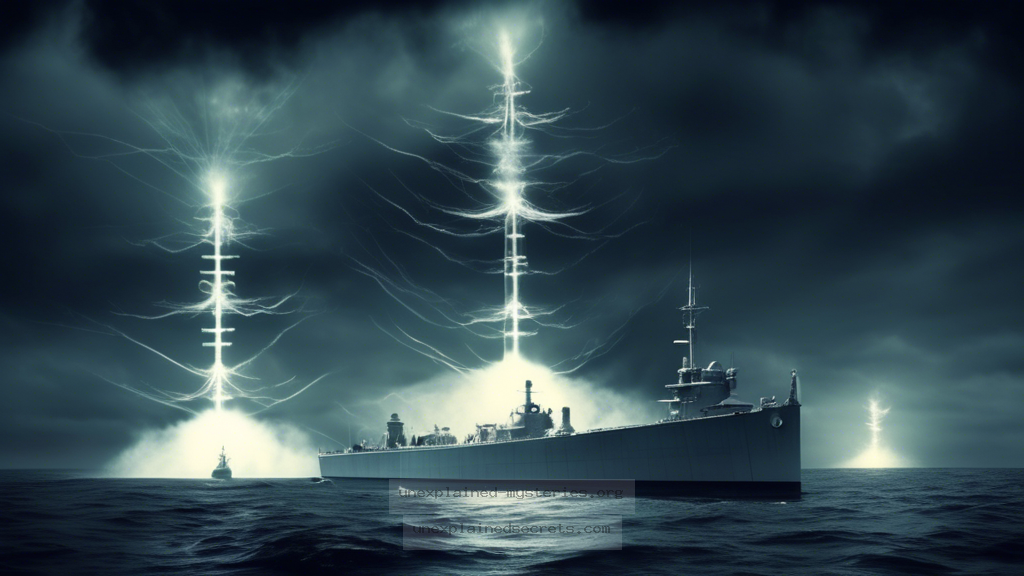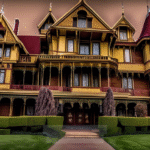What Are the Unexplained Connections Between the Philadelphia Experiment and Modern Conspiracy Theories?
What Are the Unexplained Connections Between the Philadelphia Experiment and Modern Conspiracy Theories?
The Philadelphia Experiment remains one of the most captivating and perplexing conspiracy theories in American history. It combines elements of military experimentation, time travel, and government cover-ups, igniting imaginations and sparking debates for decades. But why does this particular story resonate so strongly with conspiracy theorists, and what unexplained connections can we draw between the narrative of the Philadelphia Experiment and modern conspiracy theories? This blog post will delve into the historical context, core concepts, implications, and ongoing discussions surrounding this enigmatic event.
Understanding the Philadelphia Experiment
The Philadelphia Experiment is said to have taken place on the USS Eldridge, a naval destroyer escort, in 1943. According to legend, the U.S. Navy conducted an experiment aimed at rendering the ship invisible to enemy radar. However, things allegedly went awry, resulting in the ship disappearing completely from the Philadelphia Naval Shipyard, only to reappear later in Norfolk, Virginia. Crew members reportedly suffered horrific consequences, including madness and severe injuries due to the experiment.
The primary source of the Philadelphia Experiment story comes from a man named Carl Allen, who later became known as “Carlos Allende.” In the 1950s, he sent letters to various individuals, including noted UFO researcher Morris K. Jessup, detailing his experiences aboard the ship and the supposed effects of the experiment. Although the U.S. Navy has consistently denied any such experiment took place, the story has persisted, fueled by speculation and a growing number of theories.
The Historical Context of Military Experiments
During World War II, the U.S. military was engaged in various experimental projects, including the Manhattan Project, which developed the atomic bomb. The climate of secrecy surrounding wartime research led to an environment ripe for conspiracy theories. The military’s reluctance to disclose information about its projects only fueled public imagination and skepticism.
In the years following the war, several other military programs came to light, such as MKUltra, which involved mind control experiments. These revelations contributed to a growing mistrust of government institutions and a belief that more was happening behind closed doors than the public was aware of. The Philadelphia Experiment fits neatly into this narrative of hidden military agendas and secretive government operations.
Core Concepts of the Philadelphia Experiment Conspiracy
The Philadelphia Experiment is often discussed in the context of several core concepts prevalent in conspiracy theories:
- Government Secrecy: The belief that the government is hiding critical information from the public is a central theme in many conspiracy theories, including the Philadelphia Experiment.
- Time Travel and Alternate Dimensions: Some theorists claim that the experiment resulted in time travel or created a portal to another dimension, leading to unexplainable phenomena.
- Mind Control and Psychological Effects: Accounts of crew members suffering psychological trauma after the experiment suggest a deeper exploration of mind control, aligning with other conspiracy theories involving government experiments.
Practical Implications of the Philadelphia Experiment
The implications of the Philadelphia Experiment extend beyond just a captivating story. It raises questions about government transparency, military ethics, and the extent to which authorities might go to maintain national security. The narrative has led to a plethora of investigations, documentaries, and books attempting to uncover the truth behind the claims.
Furthermore, the experiment has inspired a range of cultural phenomena, from movies to television series, that explore themes of invisibility, teleportation, and the moral dilemmas associated with scientific experimentation. These interpretations often amplify the mythos surrounding the experiment and encourage further exploration into the unknown.
Evidence and Skepticism
Despite the enduring popularity of the Philadelphia Experiment narrative, skepticism prevails among historians and scientists. Many argue that the evidence presented by proponents of the theory is circumstantial at best. The U.S. Navy has consistently denied any involvement in such experiments, citing logistical and practical reasons for the impossibility of such a project.
In addition, a closer examination of Carl Allen’s claims reveals inconsistencies and a lack of corroborating evidence. Many researchers suggest that Allen’s letters may have been fabrications or embellishments rather than authentic accounts of his experiences.
Alternative Perspectives on the Philadelphia Experiment
While many remain captivated by the Philadelphia Experiment, it’s essential to explore alternative perspectives that challenge the mainstream narrative. Some theorists argue that the story serves as a metaphor for humanity’s struggle with technology and the unintended consequences of scientific exploration. The idea of rendering a ship invisible may symbolize a broader desire to escape the realities of war, secrecy, and the ethical implications of military advancements.
Others believe that the Philadelphia Experiment is a cautionary tale about the dangers of unchecked governmental power and the need for transparency. This interpretation resonates with individuals disillusioned with contemporary politics and the perceived erosion of civil liberties.
Common Misconceptions and Clarifications
Despite the extensive discussions around the Philadelphia Experiment, several misconceptions persist. Here are some clarifications:
Clarification: While some versions of the story suggest time travel and alternate realities, there is no concrete evidence supporting these claims. Most accounts are anecdotal and lack scientific grounding.
Clarification: The U.S. Navy has explicitly denied any involvement in the Philadelphia Experiment, stating that it was a hoax and part of a larger mythos surrounding military secrecy.
Best Practices for Investigating Conspiracy Theories
For those intrigued by the Philadelphia Experiment and similar conspiracy theories, it’s crucial to approach the subject with a critical mindset. Here are some best practices for investigating such theories:
- Research Multiple Sources: Consult a variety of sources, including academic articles, books, and documentaries. Avoid relying solely on sensationalized accounts.
- Seek Expert Opinions: Engage with historians, scientists, and experts in relevant fields to gain a nuanced understanding of the claims.
- Evaluate Evidence Critically: Scrutinize the evidence presented for and against the theory. Look for primary sources and verified data.
Future Developments and Ongoing Research
The Philadelphia Experiment continues to captivate both researchers and the general public. Ongoing investigations and discussions highlight the cultural significance of the story and its implications for understanding government secrecy and scientific ethics. New technologies and emerging research methodologies may shed light on the truth behind the experiment, but as of now, it remains a tantalizing enigma.
Moreover, the increasing accessibility of historical documents and military records may provide avenues for uncovering new evidence or insights into the claims surrounding the Philadelphia Experiment. As interest in conspiracy theories grows, so too does the potential for uncovering hidden narratives within our history.
Conclusion
The Philadelphia Experiment has evolved from an obscure military legend into a central narrative within the realm of conspiracy theories. Its connections to government secrecy, military experimentation, and the ethical dilemmas of science resonate profoundly with contemporary audiences. Despite the skepticism surrounding its validity, the story continues to inspire investigation, discussion, and cultural representation.
As we navigate the complexities of conspiracy theories like the Philadelphia Experiment, it is essential to maintain a critical mindset, seek evidence, and engage with a variety of perspectives. The allure of the unknown will likely keep this narrative alive for years to come, encouraging further exploration into the depths of our history and the mysteries that lie within.
Other Articles
Recent Posts
- What Happened to Flight MH370? The Conspiracy Theories That Still Haunt Us
- What Secrets Lurk Within the Walls of the Infamous Trans-Allegheny Lunatic Asylum?
- What Evidence Supports the Existence of Bigfoot in the Pacific Northwest?
- What Happened to the Indus Valley Civilization? Unraveling the Mysteries of Ancient Urban Life
- Can Telepathy Be Scientifically Proven Through Laboratory Evidence?







